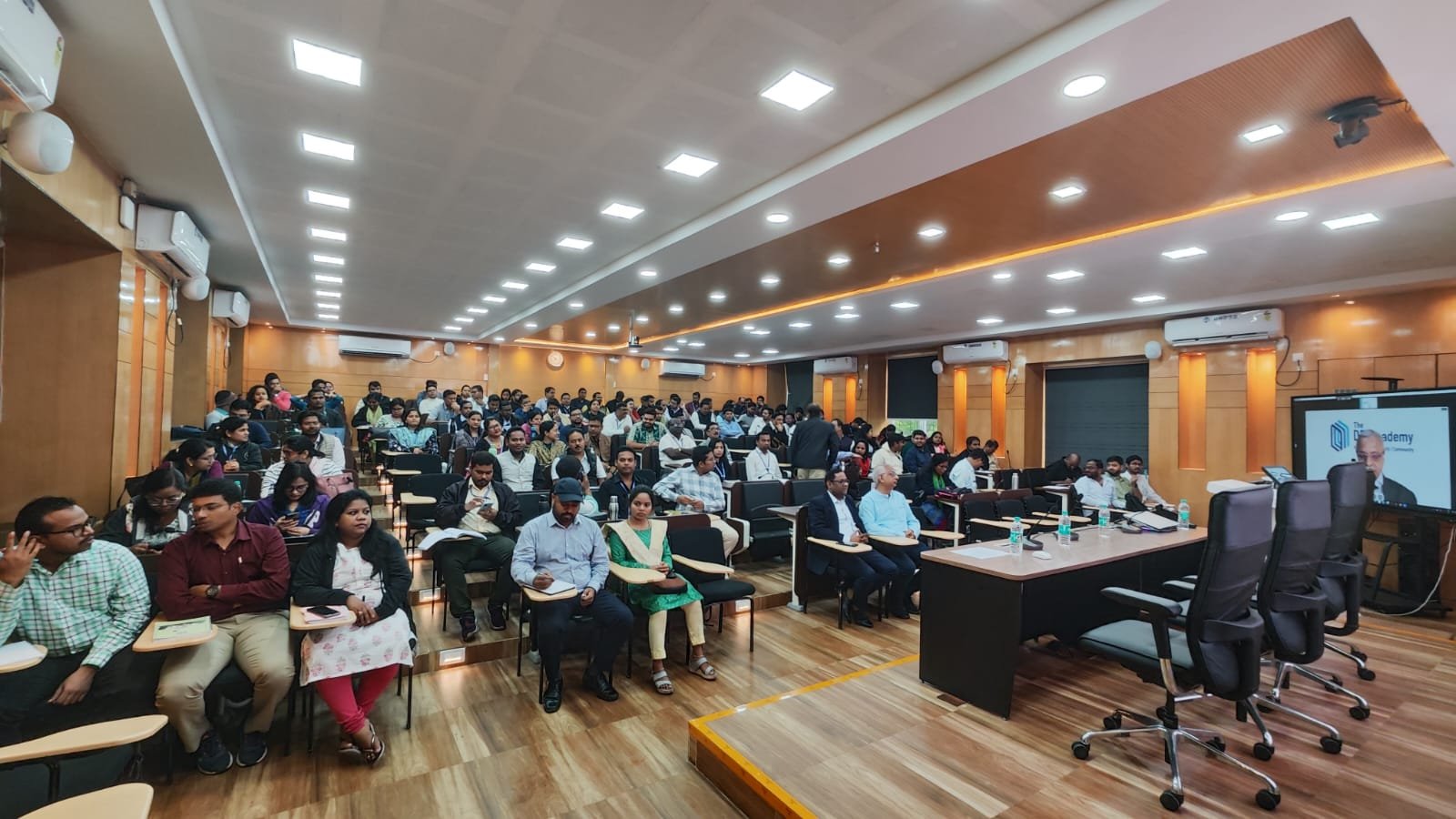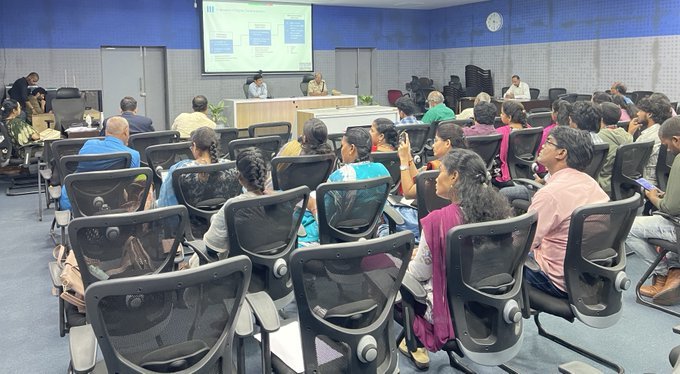Our courses demonstrate how DPI should be designed, built and governed responsibly. Aimed at key decision makers across the public and private sectors, these courses are conducted by leading experts in the field. We collaborate with administrative training academies and private institutions in India to teach a wide range of courses on DPI.
“DPI does not require deep pockets. It requires deep commitment.”
— Nandan Nilekani
Our Range of Courses
Our Model
Building Capacities for Effective Digital Public Infrastructure (DPI)
Implementing Digital Public Infrastructure (DPI) is a complex challenge. High-level commitment is essential to embarking on the DPI journey, and success depends on strong leadership across political, technical, and administrative domains. These leadership layers are critical for the conceptualisation, design, development, deployment, and regulation of DPI at scale.
At the DPI Academy, we are dedicated to building the necessary capacities for responsible DPI implementation and governance. We offer pro-bono courses that focus on developing skills at three key levels: policymakers, domain experts and technologists. DPI is not a typical IT project—it requires alignment on vision, architecture, governance models, and business strategies, as well as strong consensus-building among all stakeholders.
Collaborative Learning for Key Decision-Makers
Our courses will be designed in collaboration with a range of public and private partners, including administrative training academies and leading academic institutions. We specifically target civil servants and administrative officers who are integral to shaping DPI initiatives within government and the broader ecosystem. By equipping these decision-makers with the knowledge and tools to navigate the complexities of DPI, we aim to foster effective and sustainable digital transformations.
Past Course Deliveries
-

DPI in an Urban Context | Indian Institute of Public Administration
This course aimed to train civil servants on the use of DPI in an urban setting. It covered the opportunities and challenges in Urban governance, the ‘Urban Stack’ or the DPI enables Urban e-governance ecosystem, critical success factors involved in making DPI work for cities and touches upon existing initiatives like the National Urban Digital Mission (NUDM) and UPYOG.
-

The 'What', 'Why' and 'How' of DPI | Gopabandhu Academy of Administration, Odisha
The sessions explained the key principles and concepts of DPI, and demonstrate how the DPI approach can address governance challenges and drive digital transformation. They will cover the principles of DPI and their application through a 'think-learn-do' approach.
-

Solve the DPI way | Greater Visakhapatnam Municipal Corporation
The session covered the basics of what is Digital Public Infrastructure (DPI) for digital transformation, the importance of DPI, how DPI is actually implemented and with the help of a use case on 'solving for a waste management problem', and how a DPI in India is implemented.
